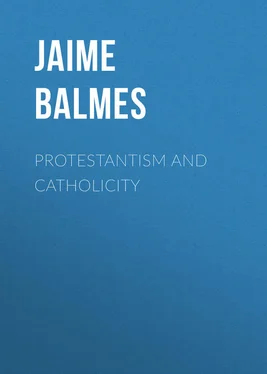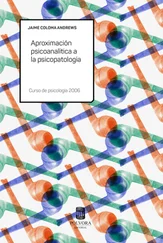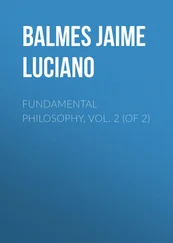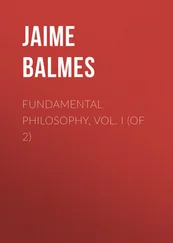Jaime Balmes - Protestantism and Catholicity
Здесь есть возможность читать онлайн «Jaime Balmes - Protestantism and Catholicity» — ознакомительный отрывок электронной книги совершенно бесплатно, а после прочтения отрывка купить полную версию. В некоторых случаях можно слушать аудио, скачать через торрент в формате fb2 и присутствует краткое содержание. Жанр: foreign_antique, foreign_prose, на английском языке. Описание произведения, (предисловие) а так же отзывы посетителей доступны на портале библиотеки ЛибКат.
- Название:Protestantism and Catholicity
- Автор:
- Жанр:
- Год:неизвестен
- ISBN:нет данных
- Рейтинг книги:3 / 5. Голосов: 1
-
Избранное:Добавить в избранное
- Отзывы:
-
Ваша оценка:
- 60
- 1
- 2
- 3
- 4
- 5
Protestantism and Catholicity: краткое содержание, описание и аннотация
Предлагаем к чтению аннотацию, описание, краткое содержание или предисловие (зависит от того, что написал сам автор книги «Protestantism and Catholicity»). Если вы не нашли необходимую информацию о книге — напишите в комментариях, мы постараемся отыскать её.
Protestantism and Catholicity — читать онлайн ознакомительный отрывок
Ниже представлен текст книги, разбитый по страницам. Система сохранения места последней прочитанной страницы, позволяет с удобством читать онлайн бесплатно книгу «Protestantism and Catholicity», без необходимости каждый раз заново искать на чём Вы остановились. Поставьте закладку, и сможете в любой момент перейти на страницу, на которой закончили чтение.
Интервал:
Закладка:
The feeling of the dignity of man is deeply engraven on the heart of modern society; we find everywhere, written in striking characters, this truth, that man, by virtue of his title of man, is respectable and worthy of high consideration; hence it is that all the schools of modern times that have foolishly undertaken to exalt the individual, at the imminent risk of producing fearful perturbations in society, have adopted as the constant theme of their instructions, this dignity and nobility of man. They thus distinguish themselves in the most decided manner from the democrats of antiquity; the latter acted in a narrow sphere, without departing from a certain order of things, without looking beyond the limits of their own country; in the spirit of modern democrats, on the contrary, we find a tendency to invade all branches, an ardent propagandism which embraces the whole world. They never invoke mean ideas; man, his reason, his imprescriptible rights , these are their perpetual theme. Ask them what is their design, and they will tell you that they desire to level all things, to avenge the sacred cause of humanity. This exaggeration of ideas, the pretext and motive for so many crimes, shows us a valuable fact, viz. the immense progress which Christianity has given to ideas with relation to the dignity of our nature. When they have to mislead societies which owe their civilization to Christianity, they find no better means than to invoke the dignity of human nature. The Christian religion, the enemy of all that is criminal, could not consent to see society overturned, under the pretence of defending and raising the dignity of man; this is the reason why a great number of the most ardent democrats have indulged in insults and sarcasms against religion. On the other hand, as history loudly proclaims that all our knowledge and feeling of what is true, just, and reasonable on this point, is due to the Christian religion, it has been recently attempted to make a monstrous alliance between Christian ideas and the most extravagant of democratic theories. A celebrated man has undertaken this enterprise; but true Christianity, that is, Catholicity, rejects these adulterous alliances; it ceases to acknowledge its most eminent apologists when they have quitted the path of eternal truth. De Lamennais now wanders in the darkness of error, embracing a deceitful shadow of Christianity; and the voice of the supreme Pastor of the Church has warned the faithful against being dazzled by the illusion of a name illustrious by so many titles. 16 Конец ознакомительного фрагмента. Текст предоставлен ООО «ЛитРес». Прочитайте эту книгу целиком, купив полную легальную версию на ЛитРес. Безопасно оплатить книгу можно банковской картой Visa, MasterCard, Maestro, со счета мобильного телефона, с платежного терминала, в салоне МТС или Связной, через PayPal, WebMoney, Яндекс.Деньги, QIWI Кошелек, бонусными картами или другим удобным Вам способом.
CHAPTER XXIII.
THE PROGRESS OF INDIVIDUALITY UNDER THE INFLUENCE OF CATHOLICITY
IF we give a just and legitimate meaning to the word individuality, taking the feeling of personal independence in an acceptation which is not repugnant to the perfection of the individual, and does not oppose the constitutive principles of all society; moreover, if we seek the various causes which have influenced the development of this feeling, without speaking of that which we have already pointed out as one of the most important, viz. the true notion of man, and his connections with his fellows, we shall find many of them which are quite worthy of attention in Catholicity. M. Guizot was greatly deceived when, putting the faithful of the Church in the same rank with the ancient Romans, he asserted that both were equally wanting in the feeling of personal independence. He describes the faithful as absorbed by the association of the Church, entirely devoted to her, ready to sacrifice themselves for her; so that, according to him, it was the interests of the association which induced them to act. There is an error here; but as this error has originated in a truth, it is our duty to distinguish the ideas and the facts with much attention.
There is no doubt that from the cradle of Christianity the faithful have had an extreme attachment to the Church, and it was always well understood among them, that they could not leave the communion of the Church without ceasing to be numbered among the true disciples of Jesus Christ. It is equally undeniable that, in the words of M. Guizot, "There prevailed in the Christian Church a feeling of strong attachment to the Christian corporation, of devotion to its laws, and an ardent desire to extend its empire;" but it is not true that the origin and source of all these feelings was the spirit of association alone, to the exclusion of all development of real individuality. The Christian belonged to an association, but that association was regarded by him as a means of obtaining eternal happiness, as the ship in which he was embarked, amid the tempests of the world, to arrive safe in the port of eternity: and although he believed it impossible to be saved out of the Church, he did not understand from that that he was devoted to the Church, but to God. The Roman was ready to sacrifice himself for his country; the Christian, for his faith. When the Roman died, he died for his country; the faithful did not die for the Church, but for God. If we open the monuments of Church history, and read the acts of the martyrs, we shall then see what passed in that terrible moment, when the Christian, fully arousing himself, showed in the presence of the instruments of torture, burning piles, and the most horrible punishments, the true principle which acted on his mind. The judge asks his name; he declares it, and adds, "I am a Christian." He is asked to sacrifice to the gods. "We only sacrifice to one God, the Creator of heaven and earth." He is reproached with the disgrace of following a man who has been nailed to the cross; for him the ignominy of the cross is a glory, and he loudly proclaims that the Crucified is his Saviour and his God. He is threatened with tortures; he despises them, for they are passing, and rejoices in being able to suffer something for his Master. The cross of punishment is already prepared, the pile is lighted before his eyes, the executioner raises the fatal axe to strike off his head; what does it matter to him? all this is but for a moment, and after that moment comes a new life of ineffable and endless happiness. We thus see what influenced his heart; it was the love of his God and the interest of his eternal happiness. Consequently, it is utterly false that the Christian, like men of the ancient republics, destroyed his individuality in the association to which he belonged, allowing himself to be absorbed in that association like a drop of water in the immensity of ocean. The Christian belonged to an association which gave him the rule of his faith and conduct; he regarded that association as founded and directed by God himself; but his mind and his heart were raised to God, and when following the voice of the Church, he believed that he was engaged with his own individual affair, which was nothing less than his eternal happiness. This distinction is quite necessary in an affair which has relations so various and delicate that the slightest confusion may produce considerable errors. Here a hidden fact reveals itself to us, which is infinitely precious, and throws much light upon the development and perfecting of the individual in Christian civilization. It is absolutely necessary that there should be a social order to which the individual must submit; but it is also proper that he should not be absorbed by society to such an extent that he cannot be conceived but as forming part of it, and remains deprived of his own sphere of action. If this were the case, never would true civilization be completely developed; as it consists in the simultaneous perfecting of the individual and of society, it is necessary, for its existence, that both should have a well determined sphere, where their peculiar and respective movements may not check and embarrass each other.
Читать дальшеИнтервал:
Закладка:
Похожие книги на «Protestantism and Catholicity»
Представляем Вашему вниманию похожие книги на «Protestantism and Catholicity» списком для выбора. Мы отобрали схожую по названию и смыслу литературу в надежде предоставить читателям больше вариантов отыскать новые, интересные, ещё непрочитанные произведения.
Обсуждение, отзывы о книге «Protestantism and Catholicity» и просто собственные мнения читателей. Оставьте ваши комментарии, напишите, что Вы думаете о произведении, его смысле или главных героях. Укажите что конкретно понравилось, а что нет, и почему Вы так считаете.












